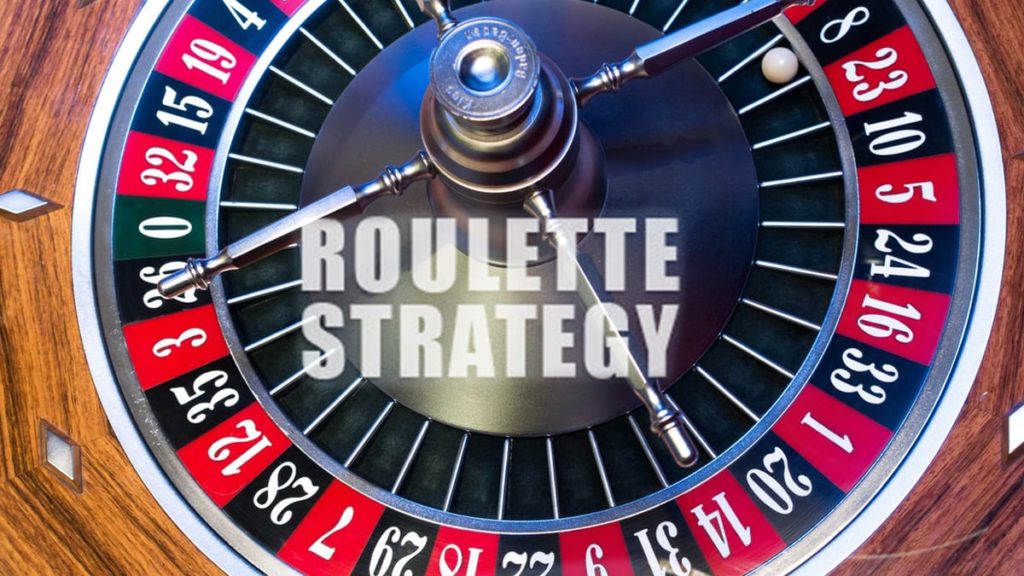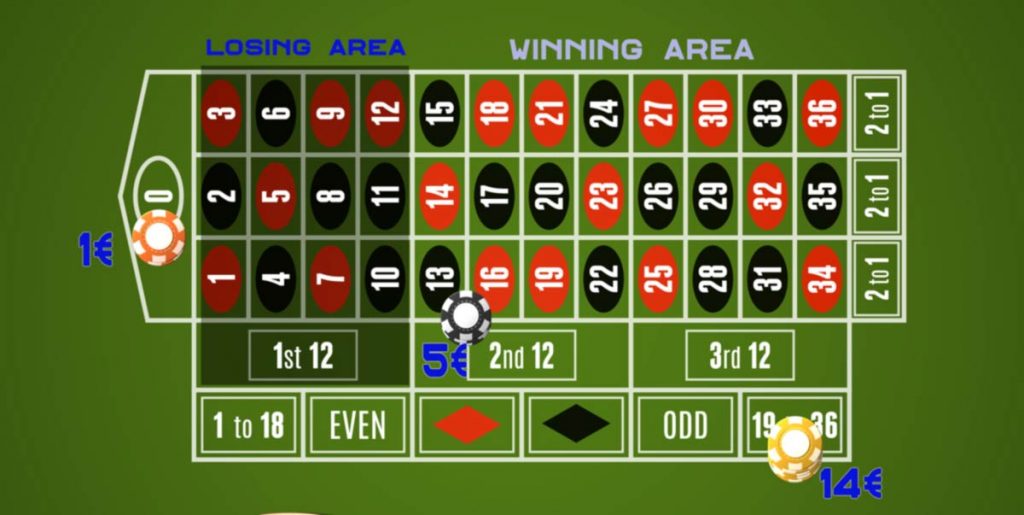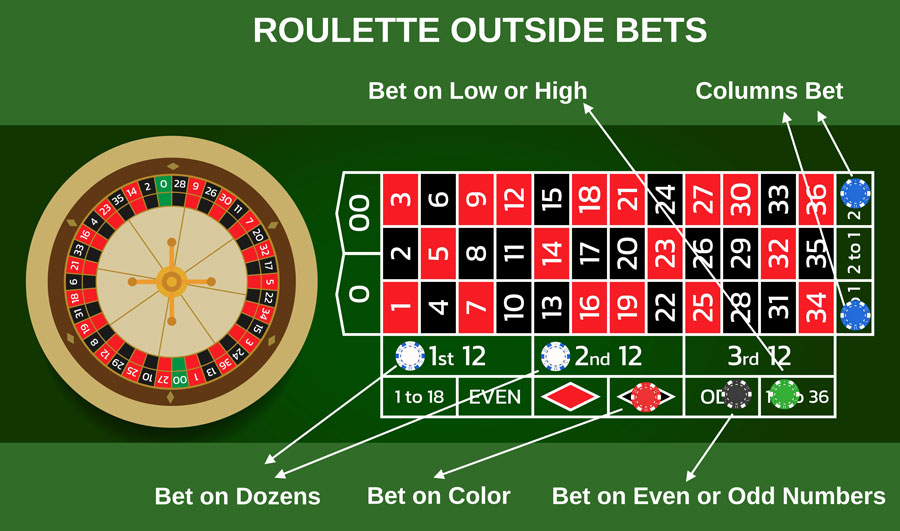A roulette strategy refers to a systematic approach or method used by players to make more calculated bets and potentially improve their odds of winning in the game of roulette. While roulette is primarily a game of chance, players often employ various strategies in an attempt to gain an edge or minimize losses.
Roulette strategies can encompass a wide range of techniques and theories, some of which are based on mathematical calculations, while others rely on patterns or betting systems. These strategies may involve tracking previous outcomes, analyzing the probabilities of certain bets, or adjusting bet sizes based on previous results.
It’s important to note that no strategy can guarantee consistent wins in roulette, as each spin is independent and the outcome is ultimately determined by luck. The effectiveness of a roulette strategy can vary depending on factors such as the specific variation of the game being played, the table limits, and the player’s risk tolerance.

What is Roulette?
Roulette, an engaging and time-honored casino game, traces its roots back to 18th-century France. Renowned for its captivating nature, this game of chance invites players to partake in an exhilarating experience as they place their bets on a mesmerizing spinning wheel, which is artfully divided into a series of numbered slots. The ultimate objective is to skillfully predict the outcome of the wheel’s rotation and strategically place bets that align with one’s predictions.
How Does Roulette Work?
In roulette, the wheel consists of numbered pockets, alternating in red and black colors. The wheel is spun in one direction, while a small ball is spun in the opposite direction. As the wheel loses momentum, the ball eventually settles into one of the numbered pockets, determining the winning number and color.
The Importance of Having a Roulette Strategy
Why Do You Need a Strategy?
Having a roulette strategy is crucial to maximize your chances of winning and minimize potential losses. While roulette is primarily a game of luck, implementing a well-thought-out strategy can help you make more informed decisions and manage your bankroll effectively.
Benefits of Using a Strategy
- Increased Winning Potential: A well-executed strategy can enhance your overall winning potential and maximize your profits.
- Controlled Bankroll: By following a strategy, you can effectively manage your bankroll and avoid impulsive and reckless betting.
- Consistent Gameplay: A strategy provides structure and discipline, ensuring consistent gameplay even during challenging sessions.
Types of Roulette Strategies
Progressive Roulette Strategies
Progressive betting strategies are widely used by roulette players seeking to optimize their chances of winning. These strategies involve adjusting the bet size based on the outcome of the previous round, aiming to recover losses or capitalize on winning streaks. Here are some popular progressive roulette strategies:
Martingale
The Martingale strategy is one of the most well-known and straightforward progressive betting systems. It involves doubling the bet after each loss and reverting to the initial bet after a win. The idea behind this strategy is that eventually, a win will occur, and the player will recover their losses while making a small profit. However, it’s important to note that a series of consecutive losses can lead to significant bets and potential financial risks.
Reverse Martingale
The Reverse Martingale strategy, also known as the Paroli system, flips the concept of the Martingale strategy. Instead of doubling the bet after a loss, players double their bet after a win. The idea is to ride winning streaks and maximize profits while keeping losses minimal. However, players need to exercise caution as a loss after a win can wipe out previous gains.
D’Alembert
The D’Alembert strategy focuses on incremental adjustments to the bet size. After a loss, the player increases their bet by a predetermined unit, and after a win, they decrease the bet by the same unit. The strategy aims to achieve balanced wins and losses over time, with the assumption that wins and losses will eventually even out. It
The Fibonacci System
The Fibonacci system is a widely known and utilized progressive betting strategy in the game of roulette. It takes its inspiration from the Fibonacci sequence, a mathematical concept in which each number is the sum of the two preceding numbers (e.g., 1, 1, 2, 3, 5, 8, 13, and so on). The Fibonacci system applies this sequence to determine the progression of bet sizes.
The fundamental principle of the Fibonacci system is to increase your bet size following the Fibonacci sequence. Unlike more aggressive strategies like the Martingale system, the Fibonacci system takes a slower and more conservative approach. Rather than doubling your bet after each loss, the Fibonacci system focuses on incrementally increasing your wager according to the predetermined sequence.
Labouchere
The Labouchere strategy is a popular betting system used in roulette. It involves creating a list of numbers representing the desired winnings. To start, you add the first and last numbers in the list to determine your bet amount. If you win, you cross off those numbers. If you lose, you add the bet amount to the end of the list. The process continues, crossing off numbers with wins and adding numbers with losses. The goal is to cross off all the numbers on the list, reaching your desired win. Keep in mind that the Labouchere strategy doesn’t guarantee profits or remove the randomness of roulette. Responsible gambling and understanding the risks involved are important for an enjoyable experience.
Non-Progressive Roulette Strategies
Non-progressive roulette strategies provide players with flexibility in their betting approach. Unlike progressive strategies that involve adjusting bet sizes based on previous outcomes, non-progressive strategies allow players to keep their wagers consistent or adjust them as desired. Although non-progressive strategies may offer lower odds of winning, they present the potential for larger payouts. These strategies are also more accessible to players with smaller bankrolls compared to the higher requirements of progressive betting systems. Moreover, non-progressive strategies allow for a broader range of bets, including both inside and outside bets, making the gameplay more engaging and enjoyable. Let’s explore some popular non-progressive betting systems commonly used in live roulette:
Flat Betting
Flat betting is a straightforward non-progressive strategy where players maintain a consistent bet amount throughout the game. Regardless of wins or losses, the bet remains the same for every spin. This approach offers stability and lowers the risk of rapidly depleting the bankroll. However, it also limits potential winnings since there are no adjustments based on the outcome of previous bets.
Constant Proportion
The constant proportion strategy involves betting a fixed percentage of the bankroll on each spin. With this approach, players adjust their bet size based on the current value of their bankroll. For example, if the chosen percentage is 5% and the bankroll is $1,000, the player would bet $50 on each spin. This strategy allows for proportional betting, ensuring that bets remain aligned with the available funds. It can be a conservative approach that safeguards the bankroll while still providing the opportunity for potential winnings.
James Bond

The James Bond strategy, inspired by the iconic character, involves placing specific bets to cover a wide range of numbers on the roulette table. In this strategy, players typically place a higher bet on the numbers 19-36, smaller bets on the numbers 13-18, and an additional bet on 0 for insurance. By covering a significant portion of the table, this strategy provides a higher probability of winning on each spin. However, it requires a larger initial investment due to the multiple bets placed simultaneously.
Wheel Clocking Strategies
Wheel clocking is a roulette strategy that revolves around observing the roulette wheel and the ball as they spin, with the goal of identifying patterns that can aid in predicting where the ball is likely to land. This strategy is based on the notion that certain roulette wheels may have slight biases, causing the ball to favor specific sections of the wheel more frequently than others. By carefully studying the wheel over time and keeping track of the outcomes, players attempt to uncover these biases and leverage them to their advantage. Here are some common wheel clocking strategies used by players:
- Visual Tracking-Visual tracking involves closely monitoring the ball as it traverses the roulette wheel, making predictions about its final landing position based on its speed, trajectory, and other visual cues. Skilled players can develop a sense of where the ball is likely to stop with a reasonable level of accuracy. This strategy requires keen observation skills and a deep understanding of the physics involved in the ball’s movement.
- Sector Targeting-Sector targeting entails identifying specific sections of the roulette wheel where the ball appears to land more frequently. By recognizing patterns in ball behavior, such as consistent clustering in certain quarters or sections of the wheel, players can adjust their betting strategy accordingly. For example, if a player notices that the ball frequently settles in the second quarter of the wheel, they may choose to focus their bets on that particular section.
- Dealer Signature-The dealer signature strategy involves observing the spinning technique employed by the dealer and searching for discernible patterns in how they release the ball. Skilled players may be able to detect consistent patterns or tendencies in the dealer’s spin that can influence the ball’s final landing position. By recognizing these patterns, players can make educated guesses about the general area where the ball is likely to come to rest and adjust their bets accordingly.
The Different Roulette Bets
In roulette, players can place a variety of bets, each with its own odds and payout. Let’s explore some of the most common types of bets:
Inside Bets
Inside bets are wagers placed on specific numbers or small groups of numbers within the layout of the roulette table. They offer higher payouts but have lower odds of winning. Some popular inside bets include:
- Straight Bet: Betting on a single number.
- Split Bet: Placing a wager on two adjacent numbers.
- Street Bet: Betting on a row of three numbers.
- Corner Bet: Placing a wager on a group of four numbers that form a square.
Outside Bets

Outside bets cover larger groups of numbers, increasing the odds of winning but offering lower payouts. Some common outside bets include:
- Red or Black: Wagering on the ball landing on either a red or black pocket.
- Odd or Even: Betting on the ball landing on either an odd or even number.
- Dozens: Wagering on the ball landing within a specific range of numbers (e.g., 1-12, 13-24, 25-36).
- Columns: Betting on the ball landing within a column of numbers on the layout.
Tips for Developing Your Own Roulette Strategy
Study the Game
To develop an effective roulette strategy, it is crucial to thoroughly study the game and gain a deep understanding of its mechanics, rules, and betting options. Familiarize yourself with different strategies and their underlying principles.
Start with Small Bets
When developing and testing a new roulette strategy, it is advisable to start with small bets. This allows you to assess the effectiveness of the strategy without risking substantial amounts of money.
The Role of Bankroll Management
Setting a Budget
Bankroll management is a vital aspect of any successful roulette strategy. Before you start playing, set a budget for yourself and determine the amount of money you are willing to risk. Stick to this budget and avoid exceeding it, even if you’re tempted to chase losses.
Managing Your Bets
A well-executed roulette strategy involves managing your bets wisely. Avoid placing overly large bets that could deplete your bankroll quickly. Instead, aim for consistent, moderate bets that allow you to play for a longer duration and increase your chances of winning.
Utilizing Technology: Roulette Strategy Tools
Roulette Betting Software
Roulette betting software is designed to analyze game data, track trends, and suggest potential betting opportunities. These software tools use algorithms and historical data to identify patterns and help players make more informed betting decisions.
Online Roulette Simulators
Online roulette simulators are virtual platforms that allow players to practice their strategies and explore different betting scenarios. These simulators provide a realistic roulette experience without the risk of losing real money, making them ideal for strategy development and testing.
Debunking Common Roulette Myths
The Gambler’s Fallacy
The Gambler’s Fallacy is a common misconception in which players believe that previous outcomes in roulette influence future outcomes. In reality, each spin of the roulette wheel is an independent event, and the outcome is purely based on chance.
Lucky Numbers and Superstitions
Many players believe in lucky numbers or follow specific superstitions when playing roulette. While these beliefs can add excitement and fun to the game, they have no impact on the actual outcome.
The Impact of Psychology in Roulette Strategy
Emotional Control
Maintaining emotional control while playing roulette is crucial for making rational decisions and avoiding impulsive betting. Emotions like greed, frustration, or fear can cloud judgment and lead to poor decision-making.
Recognizing Cognitive Biases
Cognitive biases, such as the illusion of control or confirmation bias, can affect the way players perceive and interpret information. Being aware of these biases can help players make more objective decisions when implementing a roulette strategy.
Live Dealer Roulette: Strategy and Tips
Interacting with Live Dealers
Live dealer roulette brings the authentic casino experience to your fingertips. Interacting with live dealers adds a social element to the game and allows players to observe the wheel spin in real-time. However, it’s essential to maintain focus on your strategy and not get carried away by the excitement of the live environment.
Live Roulette Strategies
While the basic principles of roulette strategies remain the same in live dealer games, there may be slight variations in terms of pacing and betting options. It’s crucial to adapt your strategy accordingly and consider the specific features of live roulette when formulating your approach.
How to Choose a Reputable Online Casino for Roulette
Licensing and Regulation
When selecting an online casino for roulette, it’s vital to choose a licensed and regulated platform. Licensing ensures that the casino operates within legal boundaries and adheres to strict standards of fairness and player protection.
Game Selection and Software Providers
Consider the game selection and software providers available at an online casino. Look for reputable software developers known for their high-quality roulette games. A diverse selection of roulette variations ensures that you have options to suit your preferences and strategy.
The Future of Roulette: Virtual Reality Casinos
Immersive Roulette Experience
Virtual Reality (VR) technology is rapidly advancing, and it has the potential to revolutionize the way we experience online casinos. VR casinos offer an immersive roulette experience, allowing players to interact with the virtual environment and enjoy a heightened sense of realism.
Advantages and Disadvantages
Virtual Reality casinos provide advantages such as an immersive atmosphere and enhanced social interaction. However, they also come with potential disadvantages, including the need for specialized equipment and the requirement of a stable internet connection.
Advancements in Roulette Strategy
AI-Powered Betting Systems
Artificial Intelligence (AI) is increasingly being integrated into roulette strategy development. AI-powered betting systems use advanced algorithms to analyze vast amounts of data, identify patterns, and optimize betting strategies based on historical results.
Machine Learning and Data Analysis
Machine Learning techniques enable AI systems to learn and adapt from data, continually improving their performance. By analyzing large datasets, AI can uncover hidden insights and generate strategies that have a higher probability of success.
Responsible Gambling and Roulette Strategy
Setting Limits
Responsible gambling is essential when implementing a roulette strategy. Set limits for yourself in terms of time and money spent on playing. Stick to these limits and avoid chasing losses or exceeding your predetermined budget.
Recognizing Problem Gambling
While roulette strategies can enhance your gameplay, it’s important to be aware of the signs of problem gambling. If gambling starts to negatively impact your personal life, finances, or mental well-being, seek help and consider self-exclusion options provided by online casinos.
FAQs
Conclusion
In conclusion, developing and implementing a well-defined roulette strategy can significantly enhance your gameplay and increase your chances of winning at online casinos. By understanding the basics of roulette, analyzing odds, managing your bankroll, and utilizing technology, you can make more informed betting decisions and improve your overall success rate.
